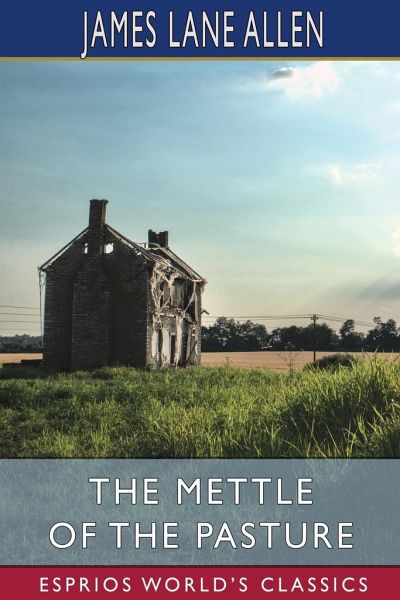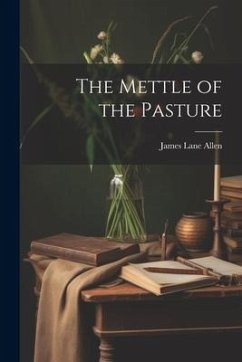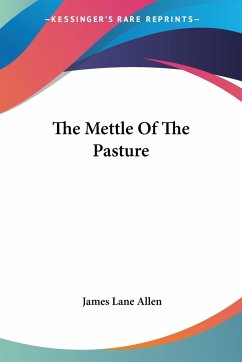
The Mettle of the Pasture (Esprios Classics)
Versandkostenfrei!
Versandfertig in 1-2 Wochen
22,99 €
inkl. MwSt.

PAYBACK Punkte
11 °P sammeln!
James Lane Allen (December 21, 1849 - February 18, 1925) was an American novelist and short story writer whose work, including the novel A Kentucky Cardinal, often depicted the culture and dialects of his native Kentucky. His work is characteristic of the late 19th-century local color era, when writers sought to capture the vernacular in their fiction. Allen has been described as "Kentucky's first important novelist".












